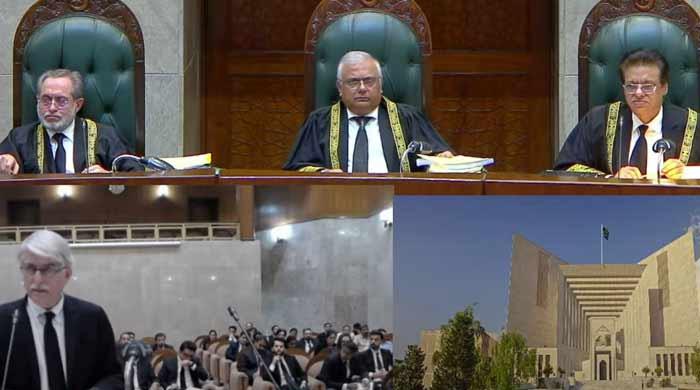
The 26th Amendment Case: Supreme Court Judges Question Chief Justice's Authority to Convene Full Court
On October 14, 2025, a significant debate unfolded in the Supreme Court of Pakistan as the Constitutional Bench addressed a pivotal issue regarding the powers of the Chief Justice of Pakistan (CJP) in convening a full court. This discussion centered around the 26th Constitutional Amendment case, which has garnered considerable attention and sparked discussions about judicial authority and constitutional interpretation in Pakistan.
Understanding the 26th Amendment
The 26th Amendment to the Constitution of Pakistan was introduced to address several pressing legal and constitutional issues. Amendments to the Constitution play a crucial role in shaping the legal landscape of a nation, reflecting the evolving needs and aspirations of its people. The 26th Amendment is particularly significant as it aims to enhance democratic principles, ensure better governance, and uphold the rule of law.
While the specifics of the 26th Amendment may vary, amendments typically focus on areas such as electoral processes, human rights protections, and the powers of various governmental branches. Understanding the implications of such amendments is essential for both legal practitioners and the general public.
The Role of the Chief Justice
The Chief Justice of Pakistan is the head of the judiciary and holds a critical position in maintaining the rule of law and ensuring justice in the country. One of the key responsibilities of the CJP is to manage court proceedings and determine the composition of benches that hear important cases.
In the context of the 26th Amendment case, the authority of the CJP to convene a full court—a gathering of all judges to hear a significant case—has come under scrutiny. The judges on the Supreme Court's Constitutional Bench raised pertinent questions regarding whether the CJP possesses the constitutional power to unilaterally call for a full court session.
The Debate Among Judges
During the proceedings, the judges engaged in a thoughtful discourse about the CJP's authority. Some judges expressed concerns that granting unilateral power to the CJP could undermine the collective decision-making process of the judiciary. They emphasized the importance of checks and balances within the judicial system, arguing that such powers should be exercised collectively rather than individually.
On the other hand, proponents of the CJP's authority pointed out that the need for efficiency and expediency in judicial proceedings often necessitates decisive leadership. They argued that the CJP's ability to convene a full court is essential for addressing complex cases that require the input of multiple judges.
Implications for the Judiciary
The outcome of this debate carries significant implications for the judiciary in Pakistan. If the Supreme Court ultimately determines that the CJP has the authority to convene a full court, it could streamline judicial processes, allowing for quicker resolutions of complex legal matters. However, if the court decides against the CJP's unilateral authority, it may lead to a more collaborative approach to judicial decision-making, fostering a sense of inclusivity within the judiciary.
This discussion also raises broader questions about the separation of powers in Pakistan's government. The judiciary, as an independent branch, must maintain its integrity and autonomy while balancing the need for effective governance. The resolution of this case will undoubtedly have lasting effects on the judicial landscape in Pakistan.
Conclusion
As the Supreme Court of Pakistan continues to deliberate the 26th Amendment case, the legal community and the public at large remain keenly interested in the outcome. The questions raised about the Chief Justice's authority to convene a full court reflect deeper issues regarding judicial governance and the interpretation of constitutional powers. The resolution of these questions will shape the future of Pakistan's judiciary and its commitment to upholding the rule of law.
FAQs
1. What is the 26th Amendment?
The 26th Amendment to the Constitution of Pakistan addresses various legal and constitutional issues, aiming to enhance democratic principles and governance.
2. What role does the Chief Justice of Pakistan play?
The Chief Justice is the head of the judiciary, responsible for managing court proceedings and determining the composition of benches for significant cases.
3. Why is the authority to convene a full court being questioned?
Judges are debating whether the Chief Justice has the unilateral power to convene a full court, emphasizing the need for checks and balances within the judiciary.
4. What are the implications of this case for the judiciary?
The outcome may impact judicial efficiency and collaborative decision-making, influencing the balance of power within the judiciary and its independence.
5. How does this debate relate to the separation of powers in Pakistan?
It highlights the ongoing discourse about judicial governance, autonomy, and the need for effective checks and balances among the branches of government.
Tags
National
